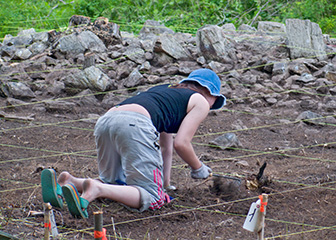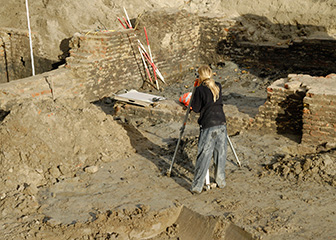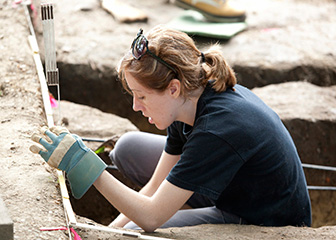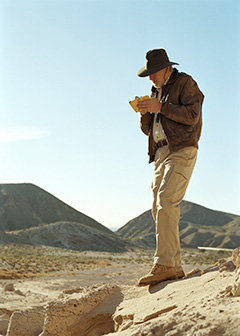What Anthropologists and Archeologists Do About this section

Anthropologists and archeologists often do fieldwork.
Anthropologists and archeologists study the origin, development, and behavior of human beings, past and present. They examine the cultures, languages, archeological remains, and physical characteristics of people in various parts of the world.
Duties
Anthropologists and archeologists typically do the following:
- Plan research projects to answer questions and test hypotheses about humans
- Develop data collection methods tailored to a particular specialty, project, or culture
- Collect information from observations, interviews, and documents
- Record and manage records of observations taken in the field
- Analyze data, laboratory samples, and other sources to uncover patterns about human life, culture, and origins
- Write reports and give presentations on research findings
- Advise organizations on the cultural impact of proposed plans, policies, and programs
Drawing and building on knowledge from the humanities and social, physical, and biological sciences, anthropologists and archeologists examine the ways of life, languages, archeological remains, and physical characteristics of people in various parts of the world. They also examine the customs, values, and social patterns of different cultures. Some anthropologists study the social and cultural consequences of current human issues, such as overpopulation, natural disasters, warfare, and poverty. Others study the prehistory and evolution of Homo sapiens.
Many anthropologists and archeologists use sophisticated tools and technologies in their work. Although tasks vary by specialty, materials often include excavating tools, laboratory equipment, statistical and database software, and geographic information systems (GIS).
Anthropologists typically specialize in one of the following occupations:
Archeologists examine, recover, and preserve evidence and artifacts from past human cultures. They analyze skeletal remains and artifacts, such as tools, pottery, cave paintings, and ruins of buildings. They connect artifacts with information about past environments to learn about the history, customs, and living habits of people in earlier civilizations.
Archeologists also manage and protect archeological sites. Some work in national parks or historical sites, where they protect known historical or archeological sites and educate the public. Others assess building sites to ensure that construction plans comply with federal regulations regarding preservation of these sites. Archeologists often specialize in a particular geographic area, time period, or subject matter, such as animal remains or underwater sites.
Biological anthropologists, also known as physical anthropologists, research the evolution of humans and their relatives. They look for early evidence of human life, analyze genetics, study primates, and examine the biological variations in humans. They analyze how culture and biology influence one another. Some may examine human remains found at archeological sites to understand population demographics and factors, such as nutrition and disease, which affected these populations. Others work as forensic anthropologists in medical or legal settings, identifying and analyzing skeletal remains and DNA.
Cultural anthropologists study the customs, cultures, and social lives of groups. They investigate the internal logic of societies in settings that range from unindustrialized villages to modern urban centers. Cultural anthropologists often spend time living in the societies they study and collect information through observations, interviews, and surveys.
Linguistic anthropologists study how humans communicate and how language shapes social life. They investigate nonverbal communication, the structure and development of languages, and differences among languages. They also examine the role of language in different cultures, how social and cultural factors affect language, and how language affects a person’s experiences. Most linguistic anthropologists study non-European languages, which they learn directly from native speakers.














